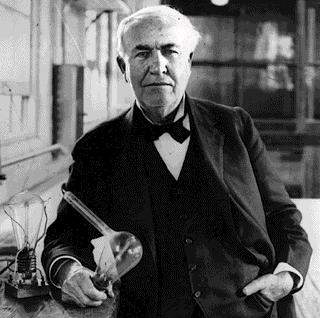What is intellectual property?
Understanding the significance and importance of intellectual property rights, whether you're an inventor, entrepreneur, artist, or consumer

What is the meaning of intellectual property? If you've developed a new technology that you believe might be a genuine invention, considering patenting this invention is an option. Patenting an invention falls legally under the concept of intellectual property rights (IPR). While another page focuses on the actual application for a patent, here we'll introduce the conceptual framework of intellectual property rights (IPR). In everyday language, instead of IPR, simply 'IP' is more commonly used. However, all these terms refer to the same concept: rights over creations of the human mind. While inventions are the most recognized, it also includes literary works, names, images, symbols, and designs for commercial use. Legislation surrounding IPR aims to protect the mental and material interests of inventors and authors. The idea is that intellectual property rights should establish a system and guarantee to reward inventors, authors, and other creative minds for their efforts.
Patents and Copyright
Intellectual property law is mostly divided into two main categories: (1) copyright, which aims to protect literary and artistic works such as books, music, paintings, and sculptures, and (2) industrial property rights, which are intended to safeguard inventions, trademarks, and industrial designs (models). The beauty of copyright is that it automatically arises upon the creation of works, such as writing a book or essay or creating a sculpture. Therefore, it does not require formal registration, unlike patents. Protecting an author's rights through a copyright application is not necessary. There is often confusion about this, but copyright is obtained automatically. Also, you do not need to include a copyright symbol or any words about copyright protection, although you are permitted to do so. For further clarity, read about it on the page answering the question: what is copyright? However, a formal application is necessary to acquire industrial property rights (including patents). Obtaining a patent is only possible by filing a patent application, which may or may not be approved.
Patents and inventions
The first step to patent an invention is by filing a patent application, usually done through a patent office or agency. The patent application is simply a set of documents written in a specific, prescribed format. Subsequently, it undergoes evaluation by an official government body, which may grant or reject the application based on whether it meets the legal requirements for patentability. When the patent is granted, the patent holder, under the intellectual property rights of the respective country, gains exclusive rights to commercially exploit the invention. To prevent inventors from having to seek commercial exploitation rights in each individual country, governments have integrated and harmonized their patent procedures at an international level.
What is the meaning of intellectual property? In other words, why would you apply for a patent to protect your invention? Imagine you're an inventor who has brilliantly developed an idea into a real invention. Perhaps you're considering starting your own business with this invention to make it a success by selling it to as many customers as possible. Why would you then apply for a patent for your invention? After all, patents incur costs, right? However, a patent offers a crucial competitive advantage. Typically, developing an idea or a new technology into a mature innovative product requires a significant investment of money, energy, and time. Often, the inventor has devoted years of work and a considerable amount of (personal) funds. To ensure these costs are earned back and the results of all this effort aren't easily replicated by a competitor, a patent becomes an indispensable tool to protect your invention.
To clarify, it's not actually possible to patent merely an abstract idea without a detailed elaboration in the application. The idea must be developed into a concrete invention, detailing its functionality extensively, before a patent application can be submitted and a patent granted. However, it can be advantageous to file a patent based solely on the idea, especially when collaboration with other companies or individuals is crucial for further development. Nevertheless, sharing essential information carries risks. To mitigate this, it might be wise to proactively apply for a patent for the concept. This provides the opportunity to secure a strong position and protect intellectual property during collaborations with external parties. The page discussing patenting an idea delves deeper into the feasibility of this approach, why it could be a strategic move, and how it can contribute to maintaining an edge over competitors.
Summarizing, we've introduced patents and the legal framework of intellectual property rights. Patents can be incredibly crucial for a (startup) technology company. However, what is the significance of a patent and how can you leverage a patent to achieve the company's ultimate goal: making money from an invention?
A useful tool to protect your rights can be the so-called MTA. The abbreviation MTA stands for Material Transfer Agreement. It is a legal contract used in the transfer of research material between two parties, such as universities or research institutions. There is also a similar document for the transfer of data (the DTA) or a combination of both (the MDTA). In many cases, the transferred materials fall under intellectual property rights, such as patents and copyrights. An MTA outlines the conditions under which the transfer takes place, including the rights and obligations of the parties involved, and it governs any restrictions on the use or distribution of the materials.
Meaning of Intellectual Property and How Does Protection via a Patent Work?
A patent provides legal protection to the inventor by granting an exclusive right to the invention. This means that a patent grants the exclusive rights to exploit an invention to the owner of the patent, the patent holder. The patent holder then has the exclusive right to make money from the invention for up to 20 years. This allows you to protect the invention and prevent others from copying or using it in any product imaginable. Consequently, your competitor cannot use the invention without your permission. In essence, a granted patent gives you a distinctive (market) advantage, which is precisely the intention of a patent. Moreover, it becomes possible to grant others a license (of course, in exchange for compensation) to use, apply, and sell your invention. Therefore, a patent holds significant economic value, enabling you to profit from an invention, recoup the costs invested in its development, and, of course, recover the expenses incurred in obtaining the patent.
Thomas Edison: Inventor and Entrepreneur
 In school, we learned that Thomas Edison is the inventor of the light bulb, but what the teacher didn't mention is
that he held nearly a world record in patents. He owned more than a thousand patents! However, not all of these were
his own inventions. Thomas Edison was primarily an entrepreneur who excelled in the game of making money through
patents. He bought many inventions directly from inventors and then applied for patents on them himself.
In school, we learned that Thomas Edison is the inventor of the light bulb, but what the teacher didn't mention is
that he held nearly a world record in patents. He owned more than a thousand patents! However, not all of these were
his own inventions. Thomas Edison was primarily an entrepreneur who excelled in the game of making money through
patents. He bought many inventions directly from inventors and then applied for patents on them himself.
